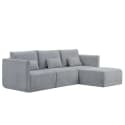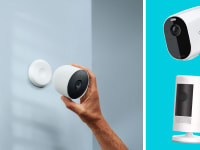Smart locks are a game-changer—here’s how they work
No more rushing home to unlock the door for visitors!
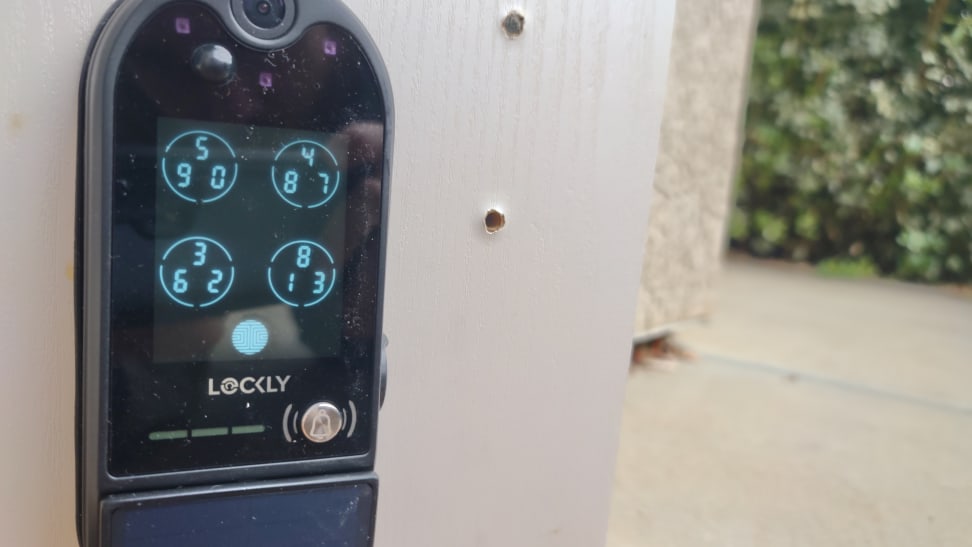 Credit:
Reviewed / Nick Woodard
Credit:
Reviewed / Nick Woodard
Recommendations are independently chosen by Reviewed's editors. Purchases made through the links below may earn us and our publishing partners a commission.
There’s no shortage of smart home gadgets available today, but for busy households, one of the best investments is a smart lock. If there are always people coming and going at your house, a smart lock offers convenience and security—it will save you from having to rush home if your kids forget their key or worrying about whether you locked the door when you left for work.
If you’re thinking about investing in a smart lock for your home, here’s everything you need to know about how smart locks work and the benefits they offer.
What is a smart lock?
Smart locks are a popular internet-connected device that help keep your house and family secure. These locks are designed to replace your door’s deadbolt, and they can be synced to your smartphone via either Bluetooth or Wi-Fi.
Because the lock syncs up with your phone, you’ll be able to lock and unlock your door with the touch of an app. However, that’s not all! Most of today’s best smart locks offer a variety of other convenient features, as well, such as keyless entry, activity logs and more.
The benefits of smart locks
The logistics of your smart lock will vary depending on the model you choose, but in general, there are several key features that you can expect from most models. Here’s what you need to know about the main benefits of smart locks and how they can be used in your home.
Keyless entry

Smart locks like the Yale Assure Lock 2, pictured, can be locked and unlocked in multiple ways, like via the companion app.
One of the main perks of smart locks is that they automatically unlock when you approach the door, saving you the hassle of digging around in your handbag to find your keys. This feature is generally available on both Wi-Fi and Bluetooth smart locks, and it’s extremely convenient when you’re coming and going throughout the day. (Just remember that you have to have your phone on your person for this to work.)
However, it’s worth noting that some smart devices will only unlock automatically if you go a certain distance from your home.
For instance, with the Yale Assure Lock 2, you have to be more than 200 meters away for the lock to recognize you as “away” from home.
So, if you go out to your car in the driveway and the door auto-locks behind you, it won’t reopen automatically when you approach it again. Keep this in mind as you set up your lock’s auto-locking settings.
Auto locking
Most smart locks have an auto-locking feature to ensure your home is always secure. There are often several auto-unlock options, with common settings including:
- Timed locking: The unit will automatically lock after a set amount of time. For instance, you could set it to automatically lock 5 minutes after it’s unlocked.
- Location-based locking: Some locks have a geofencing or proximity-based locking option, which will automatically lock the unit if your smartphone leaves a certain area—usually within a few hundred feet of the house.
Guest access
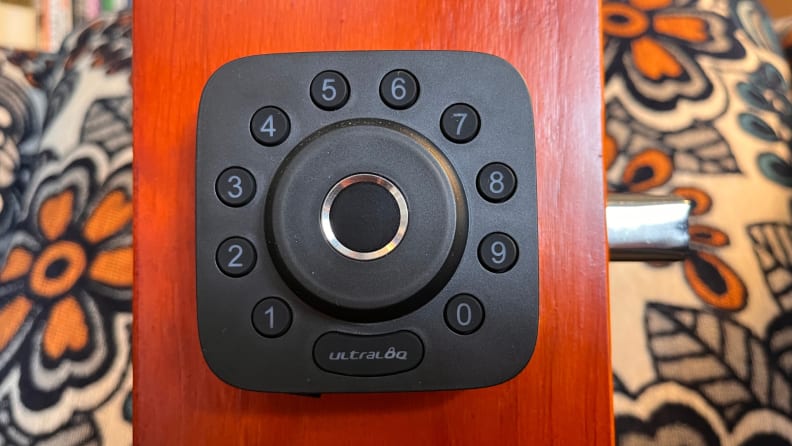
You can create codes for visitors, which can be entered on the keypad, when using the Ultraloq U-Bolt Pro, pictured above.
Once you’ve installed a smart lock, you can use its app to grant access to visitors, such as service people, house guests, babysitters or family members.
Sending invites is generally as easy as entering the person’s phone number and selecting what type of access they should receive.
There are several common types of guest access, and they may vary from lock to lock.
“Permanent access” is best for people who live with you or those who are welcome in your home any time, such as trusted family and friends.
Alternatively, for a dog walker, house cleaner, or other service person, you can choose “recurring access,” which lets you set a schedule for when their key will work—for instance, Tuesdays between 10 a.m. and 11 a.m.
Finally, for one-time visitors, you’ll want to choose “temporary access.” With this option, you’ll be able to set a date and time range, after which your guest’s access will expire.
If you have a smart lock without a keypad, your visitors will need to have a smartphone and install the smart lock app to access your home. Some locks, such as the August Smart Lock, require guest users to create an account, as well. $230 at Amazon
If you don’t want visitors to have to install the app, look for a smart lock with a keypad, such as the Ultraloq U-Bolt Pro, which will allow them to simply plug in a numerical code to unlock the door.
Activity logs
Smart locks make it easy to monitor who is coming and going from your home, as they keep an activity log that notes every time the door is locked and unlocked. Because each user has their own access code, most locks will catalog who unlocked the door, helping you to monitor your family’s activity and keep your home secure.
Other smart lock features to look for
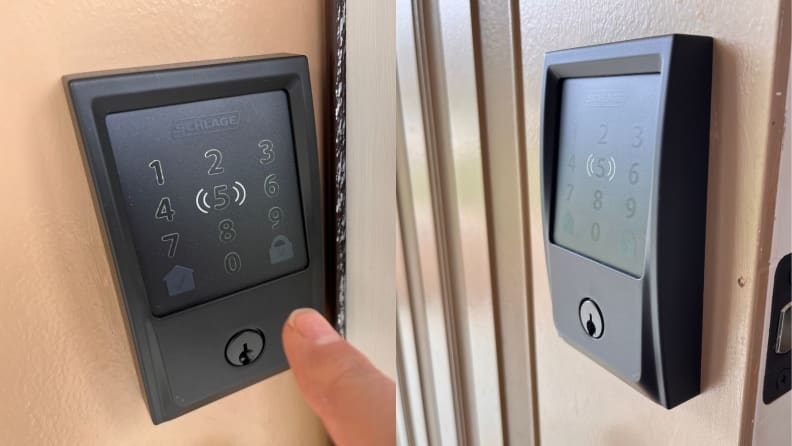
The Schlage Encode Plus, pictured, employs a flat, touch-powered keypad.
There are a variety of other smart lock features that can be convenient, depending on your needs.
- Key pads: If you have young children who don’t have smartphones or visitors who aren’t so tech-savvy, it’s a good idea to look for a lock with a keypad. This allows people to use their own unique numerical code to unlock the door.
- Biometric access: Certain smart locks allow you to use your fingerprint to unlock the door—another convenient option for children.
- Keyed entry: You can also opt for a smart lock that comes with a physical key, allowing you to manually unlock the deadbolt if needed. For instance, the Schlage Encode Plus and Alfred DB2-B Smart Door Lock both offer keyed entry.
- Door sensing: If your family tends to leave the door open, you may want a smart lock with a door-sensing feature, which will send you a notification if the door is left ajar.
- Smart home integration: Smart locks can often be paired with other smart home devices, such as security cameras or smart lights.
Additionally, most smart locks can be controlled via voice commands when they’re paired with a smart home assistant like Alexa or Google Assistant.
Are smart locks safe?
Smart locks are just as safe—if not more so—than traditional deadlocks.
Because you won’t need to give out spare keys, there’s less risk of one falling into the wrong hands, and because many smart locks don’t have physical keys at all, they’re not at risk of being picked.
Can smart locks be hacked?
Unfortunately, any device that connects to your smartphone has potential to be hacked, and this includes smart locks.
However, the most smart lock brands take security seriously, using the latest encryption technology and requiring features like two-factor authentication for log-in.
You can also increase the security of your lock by using a strong password for your account and staying up-to-date on software updates from the manufacturer.
Do smart locks work if the Wi-Fi goes out?
If you have a smart lock that connects to your phone via Wi-Fi, you may be worried that the device won’t work if the power goes out.
However, the lock itself runs on batteries, so you’ll still be able to open the lock using a numerical code (if it has a keypad) or manually if it has a physical key. Alternatively, locks that have Bluetooth don’t require a Wi-Fi connection to operate.
Do smart locks have a monthly fee?
Some smart devices, such as security cameras, require a monthly subscription fee for continued operation.
Luckily, this isn’t the case with the majority of smart locks. After your initial purchase, you’ll be able to use your smart lock at no additional cost.
